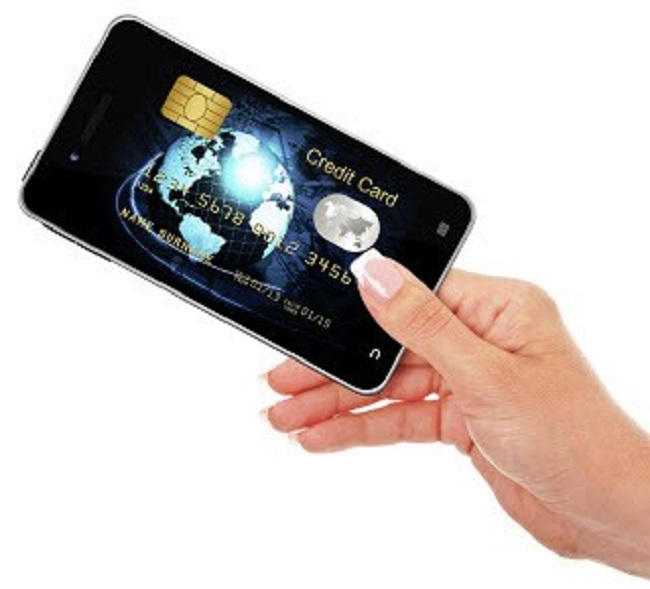A recent study has shown that shoppers think that the idea of offers over smartphones is attractive.
The results of a recent survey that was conducted by Vista Retail Support, a retail tech firm, has shown that 81 percent of consumers would be willing to accept a mobile marketing offer that was sent to them from a retailer, while an individual was shopping in that store.
Four out of every five consumers would be willing to take advantage of the opportunity those deals could present.
That same study determined that 40 percent of participants would be interested in receiving price comparisons that a retailer would send to their smartphones while they were shopping within that store. This shows that there is a certain willingness among smartphone owners to embrace the type of opportunity that location based mobile marketing has to offer them.
Still, retailers have not yet adopted this type of mobile marketing technology, despite the appeal to consumers.
 According to the Vista Retail Support sales and marketing director, Richard Cottrell, “Retailers are not utilizing technology to make personalized offers to their customers, yet the survey shows shoppers are open to this form of interaction, giving retailers a wealth of new opportunities.”
According to the Vista Retail Support sales and marketing director, Richard Cottrell, “Retailers are not utilizing technology to make personalized offers to their customers, yet the survey shows shoppers are open to this form of interaction, giving retailers a wealth of new opportunities.”
The survey also determined that, on an increasing basis, consumers are looking to chances to be able to buy over their smartphones and then simply pick up their purchases at the store. Among the respondents to the survey, 30 percent – nearly one third – said that they used a service of that nature in order to be able to avoid the Christmas shopping crowds within the stores themselves.
There are clearly many opportunities presented over m-commerce and mobile marketing that are becoming very popular to consumers. It is now up to retailers to identify the technologies that will work best for their offerings, and to make sure that they are keeping up with the expectations of their customers, as they become increasingly reliant on mobile devices for various parts of their daily activities. Those that fail to keep up could end up losing customers to competition with more convenient smartphone based shopping features.
When a credit card transaction is denied outside of its owner’s home country, up to 80 percent are false positives.
Mastercard is now using geolocation technology in order to help to reduce the frequency of “false positives” that are occurring when one of their customers has attempted to use his or her card in a legitimate way, but has had the transaction denied as it registers as potentially fraudulent.
This is an opt-in service that allows a customer to be matched with his or her location to validate a transaction.
This service uses the geolocation technology in a customer’s smartphone so that when they leave their home country and attempt to use their credit card, their location can be confirmed as being the same as that of the transaction, so that the purchase will not be flagged as a potentially risky one and a false positive can be avoided. For this program, MasterCard is working with Syniverse, an IPX provider, which has access to over six billion individual mobile subscribers who are located in over two hundred different countries.
The goal of this use of geolocation technology is to use mobile security methods to boost transaction authentication.
 According to the CMO of Syniverse, Mary Patterson Clark, “We’re providing an additional layer of fraud protection for when a consumer is on the road.” She added that “Over and above the existing fraud protection, [MasterCard is] offering this additional opt-in fraud protection offer to their customers.”
According to the CMO of Syniverse, Mary Patterson Clark, “We’re providing an additional layer of fraud protection for when a consumer is on the road.” She added that “Over and above the existing fraud protection, [MasterCard is] offering this additional opt-in fraud protection offer to their customers.”
What Clark described was a system in which the MasterCard certificate generates a token and then sends it to the platform that has been enabled by that credit card giant and Syniverse. With this, Syniverse is able to compare the location of the MasterCard and the location of the user at his or her last registration update. If those two positions are nearby, then the transaction will not be flagged as potentially fraudulent.
The company is not only hoping to continue with the reduction in false positive identifications of fraud that it has already been achieving through this geolocation technology, but it will also use it to help to make it easier for travelers to purchase prepaid data packages while they are away from home.
 According to the Vista Retail Support sales and marketing director, Richard Cottrell, “Retailers are not utilizing technology to make personalized offers to their customers, yet the survey shows shoppers are open to this form of interaction, giving retailers a wealth of new opportunities.”
According to the Vista Retail Support sales and marketing director, Richard Cottrell, “Retailers are not utilizing technology to make personalized offers to their customers, yet the survey shows shoppers are open to this form of interaction, giving retailers a wealth of new opportunities.”
 According to the CMO of Syniverse, Mary Patterson Clark, “We’re providing an additional layer of fraud protection for when a consumer is on the road.” She added that “Over and above the existing fraud protection, [MasterCard is] offering this additional opt-in fraud protection offer to their customers.”
According to the CMO of Syniverse, Mary Patterson Clark, “We’re providing an additional layer of fraud protection for when a consumer is on the road.” She added that “Over and above the existing fraud protection, [MasterCard is] offering this additional opt-in fraud protection offer to their customers.”